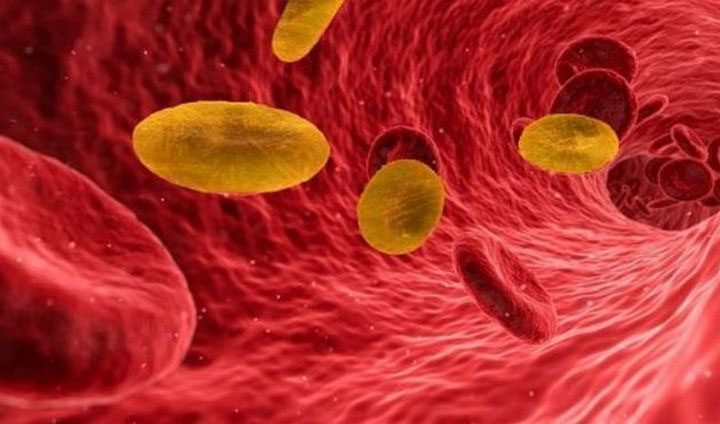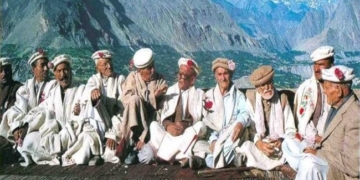Since 1961, only 43 individuals have been identified as having this rare type of blood known as golden blood.
According to the American Red Cross, human blood is classified into various groups based on specific carbohydrates and proteins present on red blood cells. Currently, there are about 40 different blood types worldwide, with over 600 types of antigens.
If someone possesses rare antigens or lacks common types, they are considered to have a rare blood type. Among these, Rh-null is the rarest blood type in the world. Individuals with this precious blood type often lead difficult lives and face numerous life-threatening dangers.
Their blood type becomes a legacy for medicine. Many individuals, despite the risks, choose to donate their blood for medical research, saving numerous lives in critical conditions.
People with rare blood types often face life-threatening situations during childbirth or accidents because their blood type is not readily available.
One of the four rarest blood types in the world is Bombay, first discovered by Dr. Bhende in India in 1952. The hallmark of this blood type is its lack of A, B, and H antigens.
Individuals with this rare blood type can only receive blood from another Bombay blood type individual. In routine clinical tests, rare blood types like Bombay can easily be misidentified as type O. If a mistake occurs and type O blood is transfused into a Bombay blood type patient, it can lead to severe hemolytic transfusion reactions, posing a serious threat to life.
It is estimated that only 1 in 10,000 Indians and 1 in 1,000,000 Europeans have this blood type. In China, only 100 individuals with this rare blood type have been identified.
Another case is Rh (-) or Rh negative blood type. This is a scientific mystery. No one can explain where Rh negative blood originates from. Many blood factor researchers believe these individuals are the result of a random mutation, if not descendants of a different ancestor.
In life, those with this blood type face significant risks when they need emergency blood transfusions (due to accidents or urgent surgeries) because reserves are not readily available.
If a mother has Rh (-) blood and the father has Rh (+) blood, serious complications may arise due to blood type incompatibility between the mother and child. This can lead to miscarriage, stillbirth, premature birth, or the child being born with intellectual disabilities.
According to Odditycentral, golden blood or Rh-null is an extremely rare blood type that has been identified over the past 50 years. This blood type is not only used for research but is also crucial for blood transfusions to save lives. However, its limitation is its scarcity.
To understand what golden blood is, we need to grasp how blood types function. Human blood may look similar, but in reality, it is very different. According to the International Blood Transfusion Association, there are 35 recognized blood types, but the most important are ABO and Rh. The combination of A, B, and RhD antigens creates 8 common blood types: A+, A-, B+, B-, AB+, AB-, O+, and O-.
Each blood cell surface can have up to 342 antigens, which are molecules that stimulate the production of antibodies. The absence of certain antigens is a crucial factor in determining a person’s blood type.

This blood type is not only used for research but is also crucial for blood transfusions to save lives.
About 160 of these antigens are common, meaning they are found on all blood cells of most people. However, if someone lacks an antigen found in 99% of the population, their blood is considered rare. Even lacking just one antigen that 99.99% of others possess makes their blood extremely rare.
The antigens belong to a system of 35 blood types, where Rh or Rhesus is the largest system with 61 antigens, divided into Rh- and Rh+. While Rh+ has the D antigen, Rh- does not. It is not unusual for individuals to lack one of the D antigens. For example, about 15% of Caucasians lack the D antigen and the most critical Rh antigen. This makes their blood Rh-. In contrast, the Rh- blood type is less common among Asians, with a prevalence of only 0.3%. But what if a person lacks all 61 Rh antigens, meaning they have none of the Rh antigens?
Half a century ago, doctors believed that a fetus without antigens would struggle to survive, let alone develop into a healthy person. However, in 1961, an Australian Aboriginal woman was identified as having Rh-null blood. This means she lacked all antigens in the Rh blood system. Since then, only about 43 individuals with Rh-null blood have been identified.
Rh-null is called “golden blood” for two reasons. The first and most important is that it lacks all Rh antigens. This also means it can be transfused to all other blood types and individuals with rare Rh blood. This is indeed an extremely rare phenomenon.
Its potential to save lives is so significant that even though the names of blood donors are kept confidential, scientists continuously monitor individuals with golden blood and encourage them to donate blood to save lives. Due to its scarcity, it is very difficult to find another blood type to replace it.
Not only does it save lives, but golden blood also provides immense scientific value. It helps researchers clarify the mysteries surrounding the complex Rh system.
Rh-null blood can be transfused to anyone with Rh- blood type. However, individuals with this blood type also face a significant disadvantage. They must find others with the same Rh-null blood type for transfusions because their bodies are only compatible with this type of blood. If they receive blood from someone with Rh+ or any of the 61 antigens they lack, the body of the individual with golden blood will react to the transfused blood cells. This results in a series of immune reactions that can be fatal.
There are other blood types that are also very rare, if not rarer than Rh-null. As of 2019, the International Blood Transfusion Association, a scientific organization specializing in blood transfusion research, has recorded 360 blood type antigens, with 322 antigens grouped into 36 blood type systems. The remaining 38 antigens have yet to be classified into any known system.
The aforementioned numbers are continually changing, with many new blood type antigens being added to various blood type systems, and occasionally some antigens being removed based on new data. All of this means that determining which blood type is the rarest among the blood types is simply impossible.
- Why is AB one of the rarest blood types in the world?
- With this blood type, you could be a descendant of aliens
- The absurd truth about the sun that 99% of people misunderstand
- These are the first visible light images of the surface of Venus taken from space
- Discovery of 3 nested planetary systems with signs of life


















































